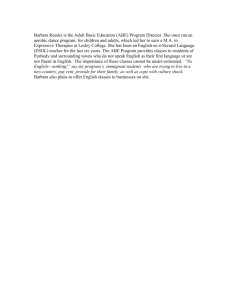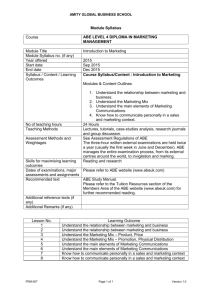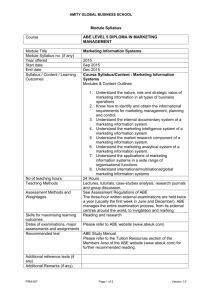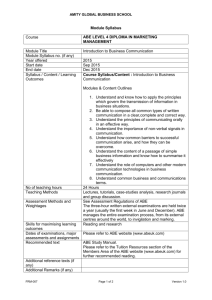Stoking old flames in new Japan OTHER VIEWS
advertisement
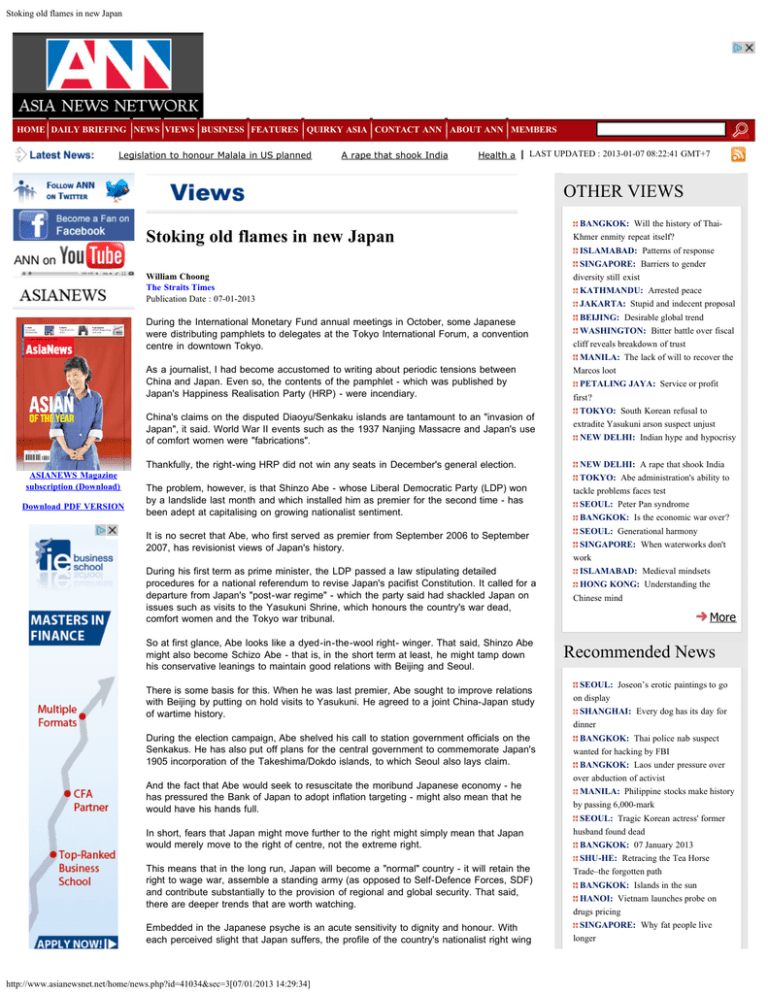
Stoking old flames in new Japan HOME DAILY BRIEFING NEWS VIEWS BUSINESS FEATURES QUIRKY ASIA CONTACT ANN ABOUT ANN MEMBERS Legislation to honour Malala in US planned A rape that shook India Health a LAST UPDATED : 2013-01-07 08:22:41 GMT+7 OTHER VIEWS BANGKOK: Will the history of Thai- Stoking old flames in new Japan Khmer enmity repeat itself? ISLAMABAD: Patterns of response William Choong The Straits Times Publication Date : 07-01-2013 diversity still exist KATHMANDU: Arrested peace JAKARTA: Stupid and indecent proposal SINGAPORE: Barriers to gender During the International Monetary Fund annual meetings in October, some Japanese were distributing pamphlets to delegates at the Tokyo International Forum, a convention centre in downtown Tokyo. As a journalist, I had become accustomed to writing about periodic tensions between China and Japan. Even so, the contents of the pamphlet - which was published by Japan's Happiness Realisation Party (HRP) - were incendiary. China's claims on the disputed Diaoyu/Senkaku islands are tantamount to an "invasion of Japan", it said. World War II events such as the 1937 Nanjing Massacre and Japan's use of comfort women were "fabrications". Thankfully, the right-wing HRP did not win any seats in December's general election. ASIANEWS Magazine subscription (Download) Download PDF VERSION The problem, however, is that Shinzo Abe - whose Liberal Democratic Party (LDP) won by a landslide last month and which installed him as premier for the second time - has been adept at capitalising on growing nationalist sentiment. It is no secret that Abe, who first served as premier from September 2006 to September 2007, has revisionist views of Japan's history. During his first term as prime minister, the LDP passed a law stipulating detailed procedures for a national referendum to revise Japan's pacifist Constitution. It called for a departure from Japan's "post-war regime" - which the party said had shackled Japan on issues such as visits to the Yasukuni Shrine, which honours the country's war dead, comfort women and the Tokyo war tribunal. So at first glance, Abe looks like a dyed-in-the-wool right- winger. That said, Shinzo Abe might also become Schizo Abe - that is, in the short term at least, he might tamp down his conservative leanings to maintain good relations with Beijing and Seoul. There is some basis for this. When he was last premier, Abe sought to improve relations with Beijing by putting on hold visits to Yasukuni. He agreed to a joint China-Japan study of wartime history. During the election campaign, Abe shelved his call to station government officials on the Senkakus. He has also put off plans for the central government to commemorate Japan's 1905 incorporation of the Takeshima/Dokdo islands, to which Seoul also lays claim. And the fact that Abe would seek to resuscitate the moribund Japanese economy - he has pressured the Bank of Japan to adopt inflation targeting - might also mean that he would have his hands full. In short, fears that Japan might move further to the right might simply mean that Japan would merely move to the right of centre, not the extreme right. This means that in the long run, Japan will become a "normal" country - it will retain the right to wage war, assemble a standing army (as opposed to Self-Defence Forces, SDF) and contribute substantially to the provision of regional and global security. That said, there are deeper trends that are worth watching. Embedded in the Japanese psyche is an acute sensitivity to dignity and honour. With each perceived slight that Japan suffers, the profile of the country's nationalist right wing http://www.asianewsnet.net/home/news.php?id=41034&sec=3[07/01/2013 14:29:34] BEIJING: Desirable global trend WASHINGTON: Bitter battle over fiscal cliff reveals breakdown of trust MANILA: The lack of will to recover the Marcos loot PETALING JAYA: Service or profit first? TOKYO: South Korean refusal to extradite Yasukuni arson suspect unjust NEW DELHI: Indian hype and hypocrisy NEW DELHI: A rape that shook India TOKYO: Abe administration's ability to tackle problems faces test SEOUL: Peter Pan syndrome BANGKOK: Is the economic war over? SEOUL: Generational harmony SINGAPORE: When waterworks don't work ISLAMABAD: Medieval mindsets HONG KONG: Understanding the Chinese mind More Recommended News SEOUL: Joseon’s erotic paintings to go on display SHANGHAI: Every dog has its day for dinner BANGKOK: Thai police nab suspect wanted for hacking by FBI BANGKOK: Laos under pressure over over abduction of activist MANILA: Philippine stocks make history by passing 6,000-mark SEOUL: Tragic Korean actress' former husband found dead BANGKOK: 07 January 2013 SHU-HE: Retracing the Tea Horse Trade–the forgotten path BANGKOK: Islands in the sun HANOI: Vietnam launches probe on drugs pricing SINGAPORE: Why fat people live longer Stoking old flames in new Japan increases. This could push the Japan military into uncharted waters - be it the adoption of nuclear weapons or an SDF that is more independent of its American ally. The critical question now is whether Abe manages to rein in the LDP's nationalist - even extremist - elements. After all, he learnt all his conservatism from Nobusuke Kishi, his maternal grandfather. Kishi served as one of Japan's wartime ministers. When he was prime minister in 19571960, he sought but failed to do several things - revise Japan's 1947 Constitution, make Japan an equal partner of the US and conduct a more muscular diplomacy. Unsurprisingly, the new prime minister has made it clear that he would seek to replicate his grandfather's policies. In 2010, when he was in the political wilderness, he led a group of 100 conservative politicians to criticise the government's release of the captain of a Chinese fishing trawler that had slammed into Japanese coast guard ships near the Senkaku islands. "We hereby declare we will resolutely seek to overthrow the Kan administration, which has damaged our nation's interest, trust and dignity," the group, which was named Sosei Nihon (or Creation Japan), said in a statement. They were referring to Mr Naoto Kan, the premier who was leading a Democratic Party of Japan government at the time. The same revisionist strains are carried by the LDP's rank and file. Like the HRP, Hakubun Shimomura, the LDP's new education minister, has argued that the Senkaku and Takeshima islands were "stolen" from Japan. In an interview with Apple Town, a right-leaning magazine, Shimomura stressed that the previous Abe administration had sought to relook all aspects of Japan's history. This included the Kono and Murayama statements, which had expressed remorse for Japan's wartime activities. And Abe and Shimomura are not alone. Abe's new Cabinet includes other revisionists, such as Tomomi Inada, the minister for administrative reform, and Yoshitaka Shindo, internal affairs and communications minister. Revisionist inclinations in Japan are worrying, says Hitoshi Tanaka, who served as deputy foreign minister in the administration of former premier Junichiro Koizumi. He is also the chairman of the Institute for International Strategy at the Japan Research Institute. "I don't consider it dangerous for us to become a normal nation... What worries me is a movement to have populist, domestic-oriented and exclusive-type nationalisms," he said in a recent interview. In addition to revisionism, there are other worrying trends. In the past two decades, Japan's security environment has deteriorated. It has clashed with Russia over the Kurile island chain, and with South Korea and China over the Takeshima and Senkaku islands respectively. North Korea's nuclear arsenal is a constant worry. This has stoked concerns in Japan over the US' extended nuclear deterrent. In 1996, Michael Green - a Japan watcher who later served in George W. Bush's National Security Council - wrote that Japan had become more hard-nosed when it came to China. Tokyo's China policy, he added, had moved from "commercial liberalism" to "reluctant realism". Fast-forward 16 years, and Japan watchers such as Prof Christopher Hughes at the University of Warwick are now warning that Japan might manifest a "resentful realism". Japan might exhibit some "unpredictable security behaviour" stemming from its frustration at not being treated seriously either as a potential adversary or an ally. "I call this a sort of 'resentful realism', where Japan takes umbrage in its lack of international status," said Prof Hughes. No one really knows what kind of unpredictable security behaviour Abe's Japan could be tempted to conduct. But history has already shown what Japan could do if pushed into a corner. Imperial Japan's decision to attack Pearl Harbor in 1941 was an exercise in futility, given America's prowess then. But Japanese leaders decided to proceed anyway, arising from bizarre calculations about honour. One can only hope that Abe would exercise pragmatism over ideology in the years http://www.asianewsnet.net/home/news.php?id=41034&sec=3[07/01/2013 14:29:34] PHNOM PENH: 'Liberation gave birth to rights, democracy in Cambodia'
